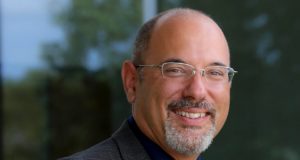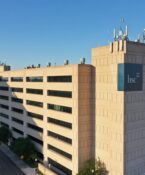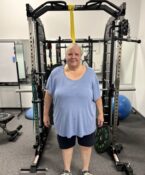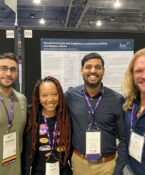Keeping Moral injury top of mind on National Doctors’ Day
 Last year, the medical profession lost more than 130,000 doctors, while only adding roughly 30,000. Physicians have suicide rates as much as 40% higher than the general population, signaling something is desperately wrong with the system they work within.
Last year, the medical profession lost more than 130,000 doctors, while only adding roughly 30,000. Physicians have suicide rates as much as 40% higher than the general population, signaling something is desperately wrong with the system they work within.
Moral injury in health care describes the challenge of simultaneously knowing what care patients deservingly need but being unable to provide it due to constraints that are systemically created by the current health care system and beyond the physician’s immediate control. In an increasingly complex business-oriented health care system, physicians bear witness to the reality that our health care system creates barriers to meeting the holistic needs of patients.
Navigating a path among such intensely competing barriers to delivering whole health is emotionally and morally exhausting. Continually being caught between the Hippocratic oath, years of being taught how patient-centered care should be delivered with the realities of such barriers has cascaded into a nationwide crisis.
As the leader of one of the most highly rated primary care medical schools in the country, Dean Frank Filipetto of The University of North Texas Health Science Center at Fort Worth’s Texas College of Osteopathic Medicine works tirelessly to train the next generation of health care providers who will have the knowledge and skills to fix our broken health care system. TCOM exists at the frontlines of this tension between morality and reality. TCOM solely exists to change the way healthcare is delivered.
“My growing concern for our health care system is worsening of the trend we had seen during the pandemic where we saw the ‘great resignation’ of health care workers inclusive of physicians who opted for early retirement,” said the Everett Endowed professor. “I like to refer to it as the ‘Great Awakening,’ as physicians and other healthcare workers are now exercising other career options in response to their frustration with a broken health care system that does not allow them to meet the needs of their patients and communities.
“We already have a physician shortage along with a significant nursing shortage in the U.S. Until we can address the systemic, not resiliency causes of this ‘Great Awakening,’ we will continue to struggle with health care workforce shortages. Many have referred to this phenomenon as burnout. Burnout, however, fails to bring attention to why this is occurring and often mistakenly identifies the lack of physician resiliency as a cause.”
The concept of moral injury was first written about when service members returned from the Vietnam War with symptoms similar to posttraumatic stress disorder. Those soldiers didn’t respond to traditional PTSD treatment, however. Soldiers suffering from PTSD came back with fear for their physical safety, whereas those experiencing moral injury suffered repeated harm to their moral and ethical foundations after being asked to commit acts that didn’t comport with their own moral standards.
In medicine, moral injury exists when a physician or health care provider is asked to choose between the needs of patients, their personal families, their own wellness, the profits of the hospital, the growth of their practice, demands of insurance, the health care system, the laws within their state or country that interfere with the patient/physician relationship and their own productivity metrics — in addition to political and social factors that have caused many people to question the science of medicine or credibility of health care professionals. Doctors believe this moral tug of war is antithetical to the physician’s oath, which demands patients be the No. 1 priority.
Moral injury costs as much as $150 billion per year. Medical errors attributed to “burnout” is estimated at up to $129 billion. The increase of doctors retiring early, at an 18% rate as of 2022, equates to an annual cost of $18 billion.
Most studies of physician dissatisfaction have been framed as burnout. The usual focus of treatment for burnout has been on self-resilience training such as yoga, mindfulness, wellness programs, meditation, mental health care and more. Although such interventions may help a physician adapt, physicians like Dr. Filipetto believe the term ‘burnout’ places the problem within the individual, who is in some way deficient. It implies that the individual lacks the resources or resilience to withstand the work environment and fails to identify the upstream causes. Some have gone as far to consider the term ‘burnout’ as a form of victim shaming.
“Moral injury more accurately describes why physicians are feeling the way they do and allows us to shift the discussion to solutions that are health care system-focused,” Filipetto said. “Physicians aren’t broken, the health care system is. This would result in the delivery of health care that all physicians morally want to be able to provide and, more importantly, the care that all patients deserve to receive.”
Moral injury locates the source of distress in a broken health care system, not a broken individual, and allows thought leaders to direct solutions to the causes of distress.





Social media